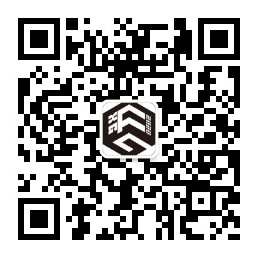មធ្យោបាយនៃចំណេះដឹងវិទ្យាសាស្ត្រពេទ្យ និងការជឿជាក់ក្នុងសាសនា នៅក្នុងប្រទេសចិន

នៅប្រទេសចិន ទាំងចំណេះដឹងវិទ្យាសាស្ត្រពេទ្យ និងការជឿជាក់ក្នុងសាសនានឹងមានតួនាទីសំខាន់ក្នុងជីវិតប្រជាជន។ វិទ្យាសាស្ត្រពេទ្យទំនើបត្រូវបានទទួលយកនិងអនុវត្តយ៉ាងទូលំទូលាយ ជាពិសេសនៅតំបន់ទីក្រុង។ ប្រជាជនចិនត្រូវបានគេជឿជាក់លើវេជ្ជសាស្ត្រទំនើបសម្រាប់ការធ្វើរោគវិនិច្ឆ័យ និងការព្យាបាល ដោយមន្ទីរពេទ្យ និងកន្លែងព្យាបាលត្រូវបានក្លាយជាអ្នកផ្តល់សេវាសុខាភិបាលចម្បង។ ទោះយ៉ាងណា វេជ្ជសាស្ត្រចិនបុរាណក៏មានឫសគល់យ៉ាងជ្រៅនៅក្នុងវប្បធម៌ចិន ហើយមានមនុស្សជាច្រើនដែលប្រើប្រាស់ការរួមបញ្ចូលនៃវេជ្ជសាស្ត្រទំនើប និងវេជ្ជសាស្ត្រចិនបុរាណនៅក្នុងការអនុវត្តសុខភាពប្រចាំថ្ងៃ។

ឧទាហរណ៍ ពេលមានការជំងឺផ្តាសាយ មនុស្សម្នាក់អាចនឹងជ្រើសរើសដើម្បីផឹកថ្នាំឱសថបុរាណខណៈពេលដែលព្យាយាមនឹងបន្តដើម្បីប្រើប្រាស់ថ្នាំជំងឺតាមដែលវេជ្ជបណ្ឌិតកំពុងផ្តល់ដំបូន្មាន។

នៅក្នុងចំណោមប្រជាជន ចំណេះដឹងពាក់ព័ន្ធនឹងវិទ្យាសាស្ត្រពេទ្យ និងការជឿជាក់ក្នុងសាសនាបានបំពេញតួនាទីសំខាន់ក្នុងជីវិតប្រចាំថ្ងៃ រួមជាមួយនឹងការចូលទៅក្នុងគណៈសង្ឃនិងសាលាជំរុំតាមផ្លូវផ្លូវមួយចំនួននៅក្នុងការធ្វើជំនួបសំរាប់សុភមង្គល។
មធ្យោបាយនៃចំណេះដឹងវិទ្យាសាស្ត្រពេទ្យ និងការជឿជាក់ក្នុងសាសនា នៅក្នុងប្រទេសកម្ពុជា
នៅប្រទេសកម្ពុជា កម្រិតនៃចំណេះដឹងវិទ្យាសាស្ត្រពេទ្យគឺទាបណាស់ ជាពិសេសនៅតំបន់ជនបទ។ ប្រជាជនកម្ពុជាច្រើនត្រូវបានគេជឿជាក់លើការអនុវត្តពេទ្យបុរាណ និងការព្យាបាលដោយស្មៅថ្នាំ មានតែបន្ទប់ពេទ្យទំនើបដែលមានដូច្នេះ។ នៅតំបន់ទីក្រុង សេវាសុខាភិបាលទំនើបមានភាពងាយស្រួលកាន់តែច្រើនប៉ុន្តែមិនត្រូវបានគេជឿជាក់ក្នុងការព្យាបាលបុរាណទេ។

ការជឿជាក់ក្នុងសាសនាមានតួនាទីសំខាន់ក្នុងជីវិតប្រជាជនកម្ពុជា ដោយសាសនាពុទ្ធគឺជាសាសនាដែលមានការពេញនិយមបំផុត។ ប្រជាជនជាច្រើនចូលទៅក្នុងវត្តដើម្បីសុំសុភមង្គល និងរកការដល់ព្រះសង្ឃដែលផ្តល់ថ្នាំស្មៅទៀតផង។ ការជឿជាក់ក្នុងគំនិតមេរោគ នឹងត្រូវបានគេជឿជាក់ក្នុងការនៃការអនុវត្តការព្យាបាលដែលមានចន្លោះត្រូវបានគេជឿជាក់ក្នុងការរកមើល។
ឧទាហរណ៍ នៅតំបន់ជនបទ កូនដែលកំពុងឈឺត្រូវបានគេចូលក្នុងវត្តសម្រាប់ធ្វើពិធីសុំសុភមង្គល ឬត្រូវបានគេប្រើប្រាស់បុរាណការព្យាបាល។
ភាពខុសគ្នានៃការអនុវត្តសុខភាពតាមវប្បធម៌

ការអនុវត្តសុខភាពប្រចាំថ្ងៃរបស់ចិនប្រហែលជាមានផ្ទៃប្រយោលនៃគំនិតវិទ្យាសាស្ត្រចិនបុរាណ ដូចជាការអនុវត្តសុខភាពតាមរដូវ ការច្រើននិយមគ្រប់គ្រងអាហារនិងការចុះហាត់។ ការសំរាប់ការអនុវត្តទាក់ទងនឹងភាពស្របនឹងធម្មជាតិនិងការពិនិត្យសុខភាពដែលមានសីលធម៍និងការទទួលយកបុរាណវិទ្យាសាស្ត្ររួមចំណែក។

ប្រទេសកម្ពុជាមាននិយមន័យអំពីការអនុវត្តសុខភាពតាមវប្បធម៌បុរាណ និងការព្យាបាលដោយស្មៅថ្នាំផងដែរ។ ការអនុវត្តនូវវប្បធម៌និងសាសនានៅតំបន់ដែលមានប្រជាជនច្រើនទំនាក់ទំនងនិងការអភិវឌ្ឍនៃការអប់រំដែលមានអាណិត។
中国民众对医疗科学与宗教信仰的态度

在中国,医疗科学常识和宗教信仰在民众生活中都有着重要的地位。现代医疗科学在中国得到了广泛的普及和应用,尤其是在城市地区。中国民众通常依赖现代医学进行诊断和治疗,医院和诊所是主要的医疗服务提供者。然而,传统中医药仍然在中国有着深厚的根基,许多人在日常养生中结合使用现代医学和中医药。

例如,许多人会在感冒时选择喝中药汤剂,同时也会遵循医生的建议服用西药。这种结合现代与传统医学的方法体现了中国人对医疗科学的多元化接受。
另一方面,宗教信仰和迷信在一些地方仍有影响力,尤其是在农村地区。比如,一些人会在生病时去寺庙祈福,或者依赖风水、占卜等方式寻找解决健康问题的办法。这些习俗更多是文化和信仰的一部分,而非主要的治疗手段。
柬埔寨民众对医疗科学与宗教信仰的态度
在柬埔寨,医疗科学的普及程度较低,尤其是在农村地区。许多柬埔寨人依赖传统的医疗实践和草药治疗,现代医学设施相对较少。在城市地区,现代医疗服务相对完善,但依旧存在对传统治疗方法的依赖。

宗教信仰在柬埔寨民众生活中占据重要地位,佛教是柬埔寨的主要宗教。许多人在生病时会去寺庙祈福,求取僧侣的祝福和草药。一些迷信观念,如鬼神信仰,也在健康问题的处理上有一定影响。
例如,在农村地区,生病的孩子可能会被带到寺庙进行祈福仪式,或是依靠民间的治病方法。这些传统做法反映了柬埔寨人对宗教信仰和医疗科学的双重依赖。
健康习惯的文化差异
中国的养生常识多基于中医理论,例如四季养生、饮食调理和穴位按摩等。这些方法强调与自然的和谐以及预防为主的理念。然而,现代医学也在迅速发展,越来越多的人开始接受健康体检、疫苗接种和科学的健康管理方法。

柬埔寨的健康习惯更多依赖于宗教和传统文化,例如使用草药、进行宗教祈福等。此外,由于医疗资源的限制和教育水平的差异,柬埔寨人在卫生健康习惯上可能更依赖于传统和民间的智慧。

Attitudes Toward Medical Science and Religious Beliefs in China
In China, both medical science knowledge and religious beliefs play significant roles in people’s lives. Modern medical science is widely adopted and practiced, especially in urban areas. Chinese people typically rely on modern medicine for diagnosis and treatment, with hospitals and clinics being the primary healthcare providers. However, traditional Chinese medicine (TCM) also has deep roots in Chinese culture, and many people use a combination of modern medicine and TCM in their daily health practices.
For instance, when someone catches a cold, they might choose to drink herbal decoctions while also following a doctor’s prescription for antibiotics. This blending of modern and traditional medical approaches reflects the diverse acceptance of medical science among Chinese people.
On the other hand, religious beliefs and superstitions still influence some areas, particularly in rural regions. For example, some people might visit temples to pray for health or use feng shui and divination to seek solutions to health issues. These practices are more cultural and spiritual supplements rather than primary treatment methods.
Attitudes Toward Medical Science and Religious Beliefs in Cambodia
In Cambodia, the level of medical science literacy is relatively low, especially in rural areas. Many Cambodians rely on traditional medical practices and herbal treatments, with fewer modern medical facilities available. In urban areas, modern healthcare services are more accessible but there remains a strong reliance on traditional treatments.
Religious beliefs play a crucial role in Cambodian life, with Buddhism being the dominant religion. Many people visit temples to pray for health and seek blessings from monks, who also provide herbal remedies. Superstitions, such as beliefs in spirits, also influence how health problems are approached.
For example, in rural areas, a sick child might be taken to a temple for a blessing ceremony or treated with traditional remedies. These practices illustrate the dual dependence on religious beliefs and medical science among Cambodians.
Cultural Differences in Health Habits
Chinese health practices often draw from TCM principles, such as seasonal health maintenance, dietary adjustments, and acupressure. These methods emphasize harmony with nature and preventive care. Meanwhile, modern medicine is also rapidly developing, and more people are embracing health check-ups, vaccinations, and scientific health management methods.
Cambodian health habits rely more on religious and traditional cultural practices, such as using herbal medicine and performing religious rituals. Additionally, due to limited medical resources and differences in education levels, Cambodians may depend more on traditional and folk wisdom for health maintenance.
声明:本站所有文章,如无特殊说明或标注,均为本站原创发布。任何个人或组织,在未征得本站同意时,禁止复制、盗用、采集、发布本站内容到任何网站、书籍等各类媒体平台。如若本站内容侵犯了原著者的合法权益,可联系我们进行处理。
Statement: Unless otherwise specified or noted, all articles on this site are original publications by our platform. Any individual or organization is prohibited from copying, stealing, collecting, or publishing the content of this site on any website, book, or other media platform without obtaining prior permission from us. If any content on this site infringes upon the legitimate rights of the original author, please contact us for resolution.




